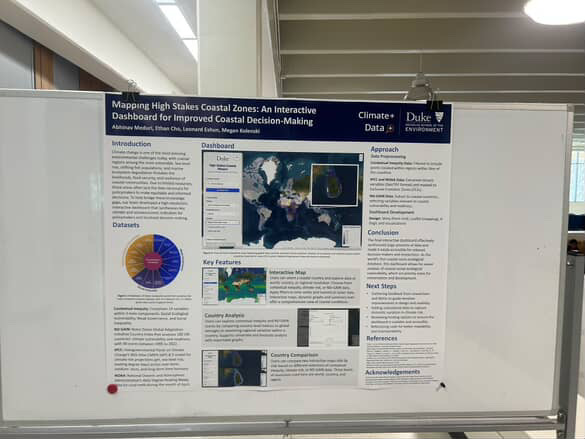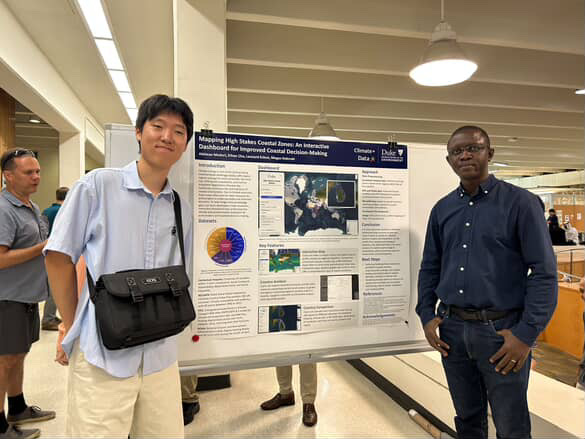Mapping Coastal Futures: Youth Innovation in Action
- Jina Song

- Nov 17, 2025
- 2 min read
Duke University Climate Week Feature
How can we better protect our coastlines in a world of rising sea levels and intensifying climate impacts?
Ethan Cho, a current student at Duke University and a Greener is Cleaner alumnus, has been working to answer that very question. Presenting at the Climate+ program, Ethan shared his team’s project titled “Mapping High-Stakes Coastal Zones: An Interactive Dashboard for Improved Coastal Decision-Making.”
Developed through the Nicholas School of the Environment, the dashboard combines GIS, data science, and climate resilience to help policymakers visualize threats and make informed decisions for at-risk coastal areas. The project highlighted how youth-driven innovation can connect people, planet, and policy in galvanizing ways.
While Duke is not directly on the coast, it is in Durham, a community approximately 130 miles inland from the Atlantic coast. Notably, Duke's Marine Laboratory is located in Beaufort, NC, on the Atlantic coast. It is a separate, year-round campus for coastal and marine studies. Students will also have an opportunity to engage with a global network of researchers and representatives from NGOs such as the World Wildlife Fund, the Wildlife Conservation Society, and more. Numerous other environmental organizations from around the world attended. This work helped bridge crucial data gaps on conditions in socioeconomically disadvantaged and climate vulnerable coastal areas and assist policymakers with implementing policies that significantly improve climate resilience, ecosystem health, and human well-being globally.
Check out the photo gallery below for a glimpse into the project in action.
“It was an amazing experience being able to combine my relatively fresh interests in data science with my long-term interests of environmental science, and those 10-weeks were an incredible experience in every aspect!" said Ethan. Ethan and his peers kept their focus not just on the science, but on solutions that scale. Through international collaboration and hands-on research, this dashboard is one step closer to a more sustainable, better-prepared future for vulnerable coastal communities.
Learn more about the project here!











